Eurovision, Diana Ross, Bjork: Music snapper's best pictures
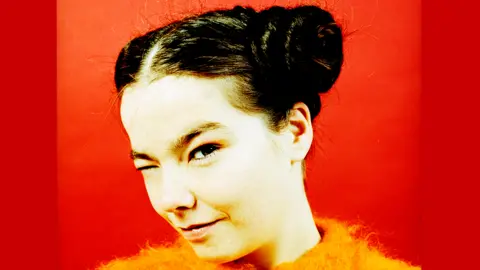 Mark McNulty
Mark McNulty"I got into music and photography at the same time, but it took me quite some time, years later, for those two things to collide."
Mark McNulty is talking about the collision that came to define his life and career as a photographer.
That same collision has given us a close-up view of some of the world's most successful artists and a fascinating insight into the live music scene.
From Bjork to Paul Weller, Manic Street Preachers to Diana Ross, Anfield to Eurovision, Mark has been there, camera in hand, ready to capture them.
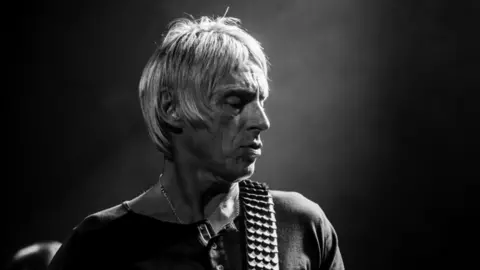 Mark McNulty
Mark McNultyGrowing up in Liverpool, but now based in north Wales, Mark remembers he first took an interest in photography when he was just 14 years old.
"I was a hobbyist," he said. "I never went to any further education, not a degree level or anything."
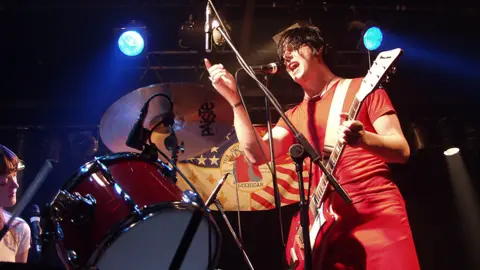 Mark McNulty
Mark McNulty"There was a big thing in the late 1970s," he added.
"[The photographer] David Bailey was advertising Olympus cameras on television, there were programmes about photography, about how to take photographs.
"But unlike all the other kids in school, I just stuck with it."
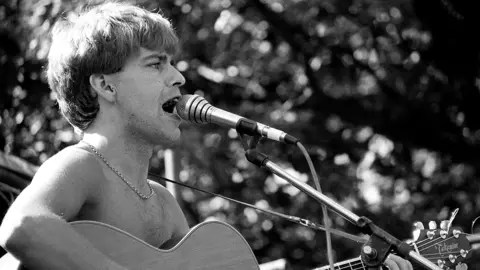 Mark McNulty
Mark McNultyIt was not until he was 20 years old, however, that he saw his love of music and his passion for photography as a possible career.
Already a fan of the Beatles, it was a Linda McCartney photography exhibition in Liverpool, along with a short course on documentary photography, that nudged him even closer to it as a possible profession.
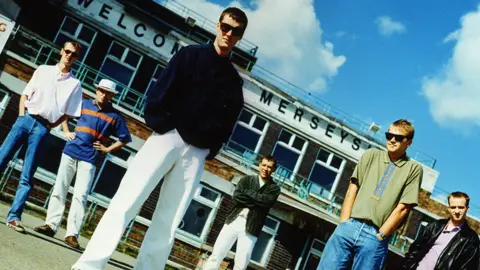 Mark McNulty
Mark McNultyThen, either by fate or coincidence, a few of Mark's friends formed a band and he accompanied them to a music festival, along with his camera.
He said it was "a pivotal moment", with his future coming into focus through the camera lens.
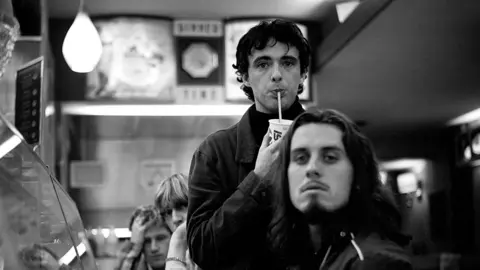 Mark McNulty
Mark McNulty"I remember thinking 'Oh yeah, I can do this. I've been thrust in the middle of it and I can do this'."
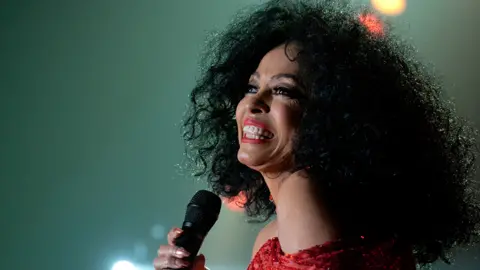 Mark McNulty
Mark McNultyWhat followed was a rich and varied career that has taken Mark all over the world to photograph some of the most famous music artists in history.
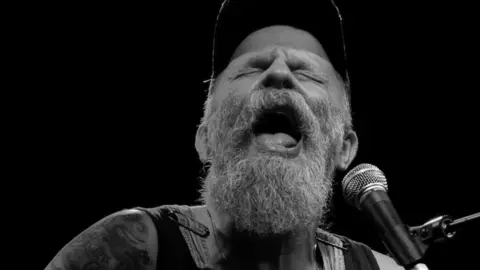 Mark McNulty
Mark McNultyBeginning his career proper in 1987, Mark has seen numerous artists, bands, cameras and lenses come and go over the years.
 Mark McNulty
Mark McNulty"Working in music photography has changed because music has changed," he said.
 Mark McNulty
Mark McNulty"Music and photography have both gone digital and seen massive changes and that's affected a lot of things.
"But everything changes."
 Mark McNulty
Mark McNultyDespite these changes, however, Mark has never lost his love for capturing the artists he gets close to.
 Mark McNulty
Mark McNulty"A lot of the stuff I end up being happy with is where I'm just documenting something that's going on," he said. "And that's usually on the art scene or music scene."
 Mark McNulty
Mark McNulty Mark McNulty
Mark McNulty